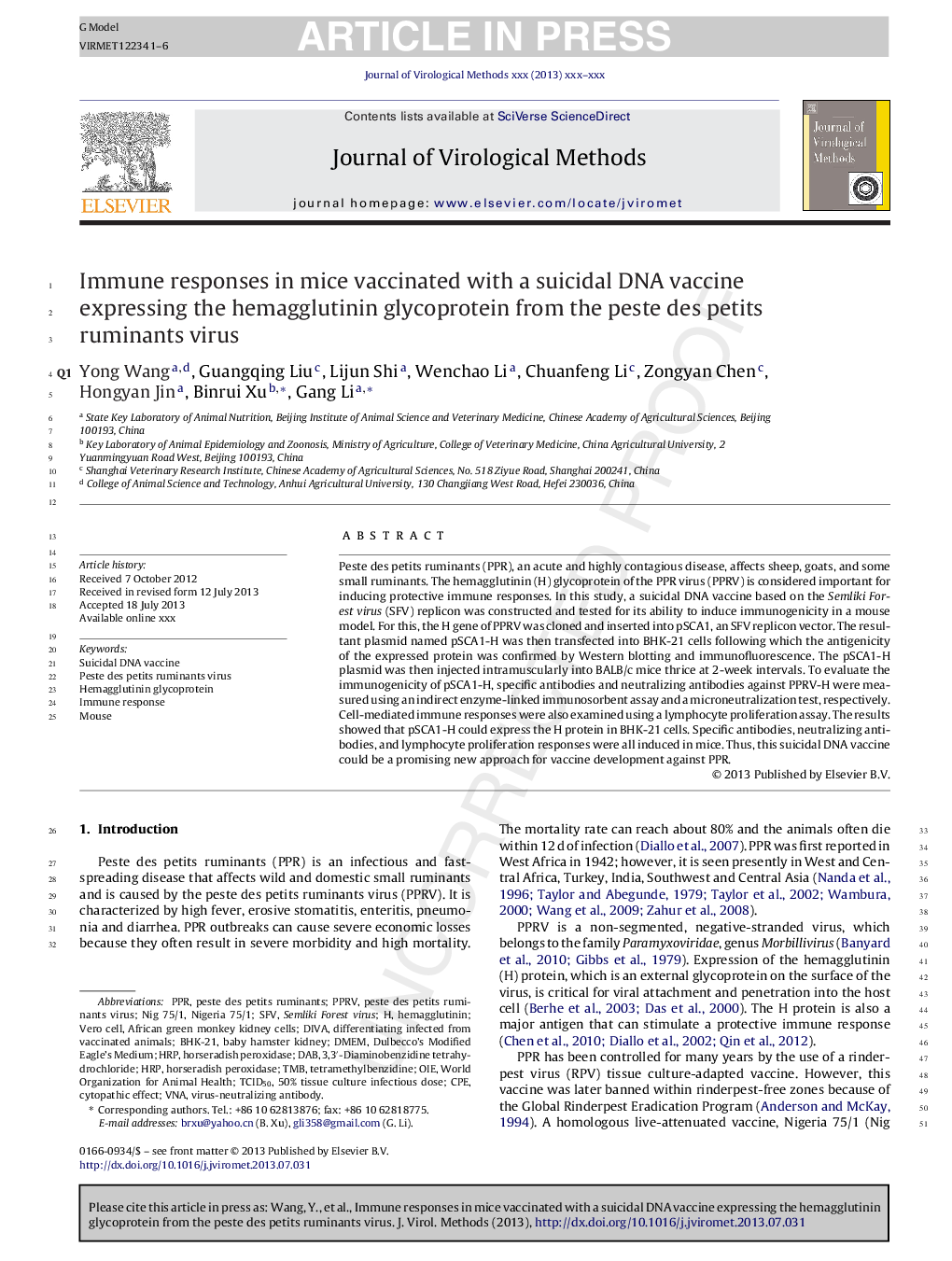| Article ID | Journal | Published Year | Pages | File Type |
|---|---|---|---|---|
| 6134084 | Journal of Virological Methods | 2013 | 6 Pages |
Abstract
Peste des petits ruminants (PPR), an acute and highly contagious disease, affects sheep, goats, and some small ruminants. The hemagglutinin (H) glycoprotein of the PPR virus (PPRV) is considered important for inducing protective immune responses. In this study, a suicidal DNA vaccine based on the Semliki Forest virus (SFV) replicon was constructed and tested for its ability to induce immunogenicity in a mouse model. For this, the H gene of PPRV was cloned and inserted into pSCA1, an SFV replicon vector. The resultant plasmid named pSCA1-H was then transfected into BHK-21 cells following which the antigenicity of the expressed protein was confirmed by Western blotting and immunofluorescence. The pSCA1-H plasmid was then injected intramuscularly into BALB/c mice thrice at 2-week intervals. To evaluate the immunogenicity of pSCA1-H, specific antibodies and neutralizing antibodies against PPRV-H were measured using an indirect enzyme-linked immunosorbent assay and a microneutralization test, respectively. Cell-mediated immune responses were also examined using a lymphocyte proliferation assay. The results showed that pSCA1-H could express the H protein in BHK-21 cells. Specific antibodies, neutralizing antibodies, and lymphocyte proliferation responses were all induced in mice. Thus, this suicidal DNA vaccine could be a promising new approach for vaccine development against PPR.
Keywords
Related Topics
Life Sciences
Immunology and Microbiology
Virology
Authors
Yong Wang, Guangqing Liu, Lijun Shi, Wenchao Li, Chuanfeng Li, Zongyan Chen, Hongyan Jin, Binrui Xu, Gang Li,
